
Flood hits Iran hard; mismanagement, corruption, deaths
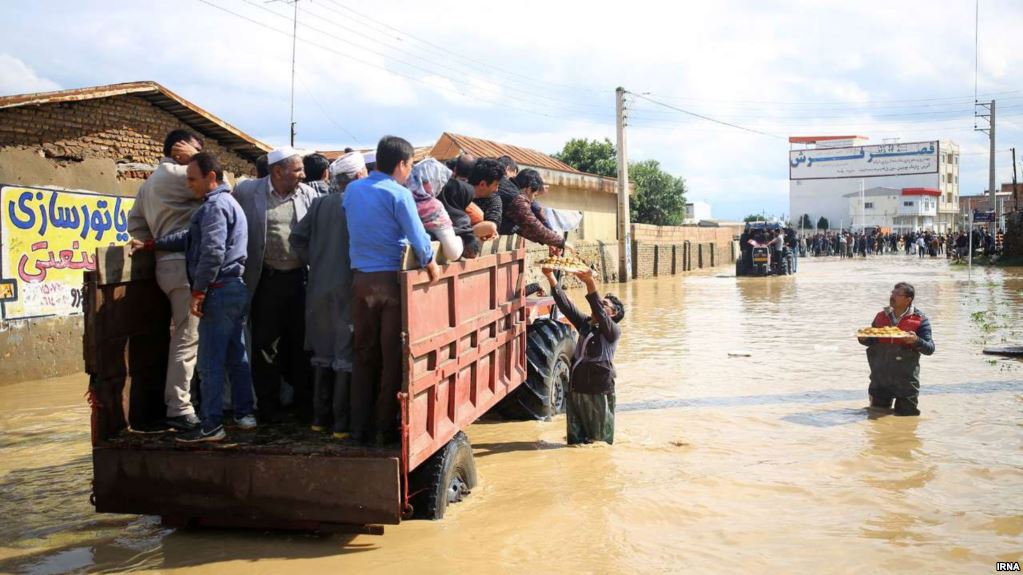
The flood hitting many provinces of Iran in recent days has left many dead and inflicted considerable damages to the country. Many Iranians see this as a result of mismanagement of the government and widespread corruption.
The exact number of fatalities is not clear yet. According to the Legal Medicine Organization of Iran, 39 individuals have lost their lives so far, and the number of casualties is still growing.
A number of environmentalists believe that recent floods are due to mismanagement and wrong policies such as “deforestation” and reduction of grasslands, as well as irresponsible exploitation of mines and nature.
In case of flood in Golestan province, northern Iran, experts hold that one of the main causes was deforestation in the area. Since the beginning of the revolution, all the benefits of Golestan’s forests have been pocketed by Seyyed Kazem Nour-Mofidi, representative of velayat-e faqih and Golestan’s Friday prayer leader. He has established 20 companies managed by his children to exploit the forests in this area. In past 4 decades, 2 million hectares of forests of the country have been destroyed, which has resulted in having such floods.
Mismanagement is seen as the other cause of considerable damages. After the flood in Golestan, First Vice President Eshaq Jahangiri ousted the governor of this flood-stricken province for his absence during the catastrophe. The governor of Golestan province, Manaf Hashemi, was vacationing abroad when flood broke out in his province.
VP Jahangiri, during his visit to Golestan, said it was “totally unacceptable” to him that a manager with a great deal of responsibilities was absent during such critical times.
Radio Farda
BBC Persian
US sanctions 25 individuals, entities affiliated with IRGC
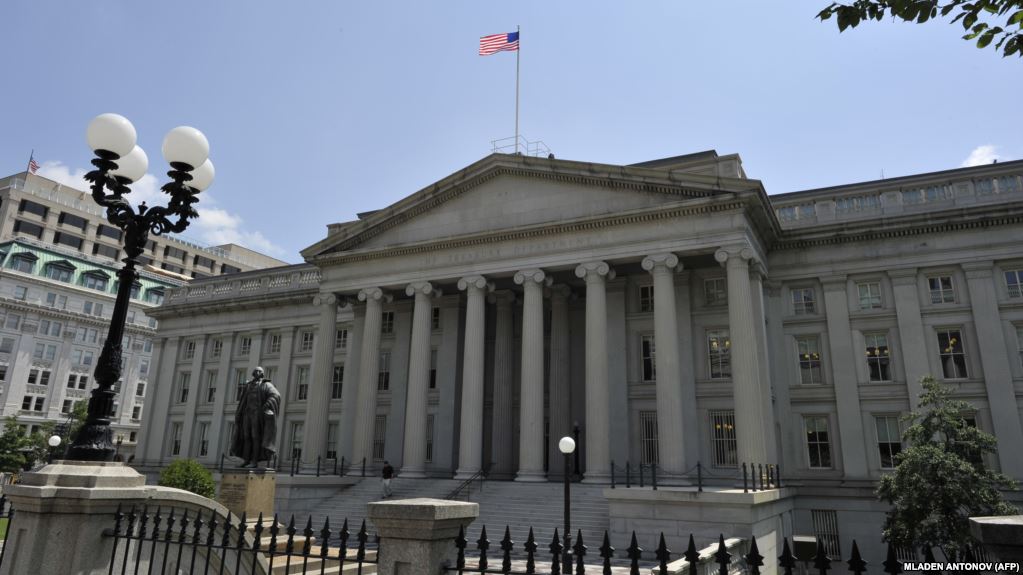
The United States added a number of individuals and companies in Iran, Turkey, and UAE to the list of sanctions for transferring billions of dollars and euros to IRGC. According to the statement of US Treasury Department, these sanctions target 25 individuals and entities including front companies in the abovementioned countries that have ties with IRGC and Iran’s Defense Ministry.
The list of sanctions includes names of a few banks and economic institutes, such as Ansar Banks, Atlas Exchange, and Iranian Atlas Company.
Steven Mnuchin, US Secretary of Treasury said in this regard: ‘We have targeted an extensive network of front companies and individuals in Iran, Turkey, and UAE to disrupt Iran’s plan in illegally transferring billions of dollars.’
Mnuchin added that IRGC and Iran’s Defense Ministry are still seeking to evade sanctions to help Iranian regime in financing terrorism and destabilize the Middle East.
Just a few days earlier, US Office of Foreign Assets Control (OFAC) had added 14 individuals and 17 entities related to Islamic Republic’s defense ministry to list of sanction against Iran. According to Department of Treasury, those sanctions targeted individuals and organizations related to SPND, Iran’s Organization for Defense Innovation and Researches.
SPND plays a key role in Islamic Republic’s efforts to achieve nuclear weapons. US Secretary of Treasury Steven Mnuchin said that US administration would take decisive measures against all those in relation with SPND that backs Iran’s defense sector.
In response to sanctions, Iranian FM Mohammad Javad Zarif tweeted: ‘US is the single biggest source of instability in Middle East’.
US Secretary of State Mike Pompeo said with regard to new sanctions against Iran’s military industry and those related to Iran’s nuclear program that the maximum pressure campaign against Iranian regime would continue. He stressed that to ‘deprive Iranian regime of capability to develop weapons of mass destruction and its unlawful behaviors, we will be tough.’
Radio Farda
Kayhan London
Dirty money in Iran’s politics
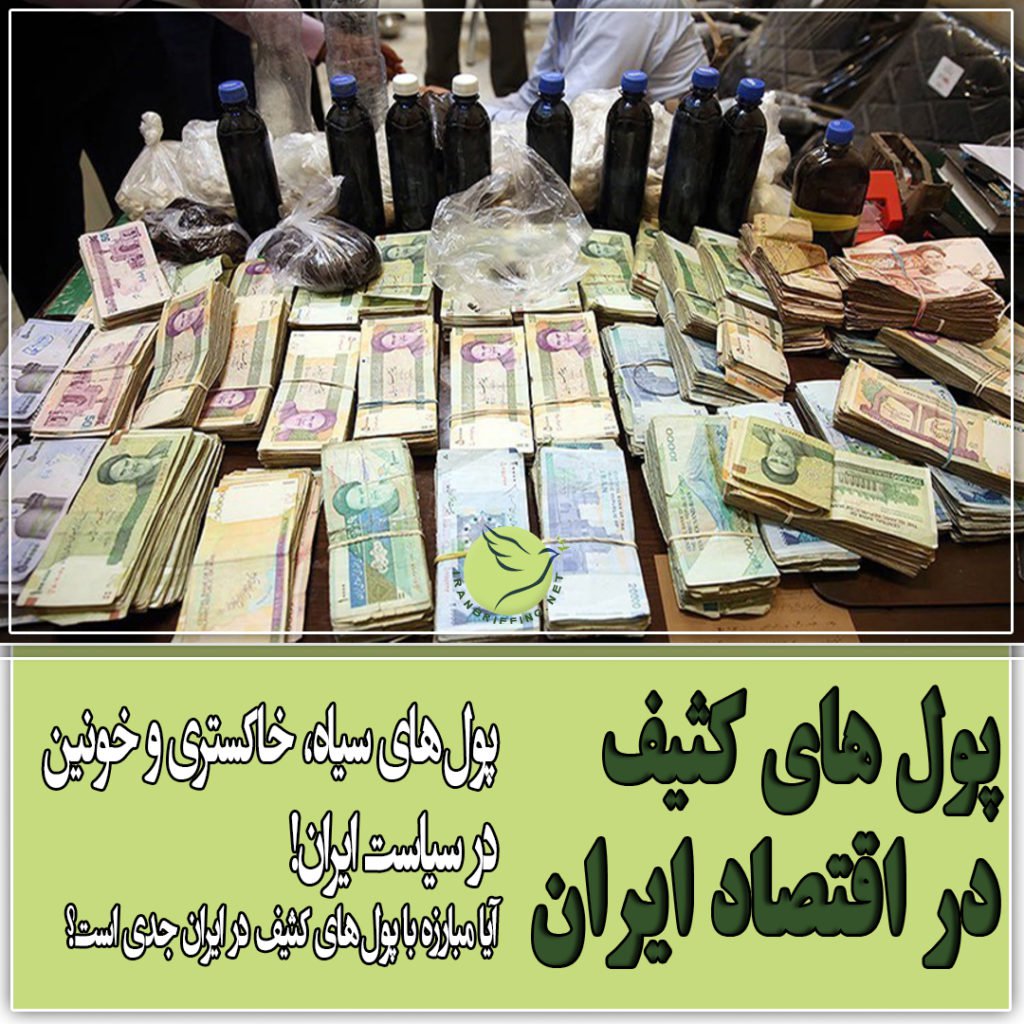
Dangerous trend of money laundering throughout the world damages the national economy, while issues including drug trafficking, smuggling goods, arms deals, and terrorism prepare the ground for dirty money to enter the economy. By money laundering, we mean all measures during which illegal incomes become legal and unprosecutable.
Money laundering is a long, complicated, and continuous process that usually takes place on a large-scale and can go beyond the geographical-political boundaries of a country. There are three kinds of dirty money: black money obtained through smuggling goods and drug trafficking; blood money, obtained through anti-humanitarian and treasonous measures; grey money that is obtained through underground channels.
According to official statistics, there is at least 81 thousand billion tomans of dirty money in Iranian economy. This money is the result of organized activities of military and religious institutes and organizations that act in Iran’s economy with no transparency. According to Abdulreza Rahmani Fazli, Interior Minister in Rouhani’s government, this money has entered the political cycle, making fight against corruption difficult and almost impossible.
In addition to money obtained through smuggling goods, a part of money that is obtained through drug trafficking, too, enters Iran’s politics. According to Rahmani Fazli, a part of this money enters Iran’s politics and election as donation to candidates’ election campaigns.
Iran Briefing
Khamenei’s annual speech; psychological reaction to personal insecurity

The Supreme Leader’s speech on Iranian New Year’s Day (March 21) in city of Mashhad can be called one of his angriest speeches in past decades with regard to foreign policy.
Ali Khamenei described American authorities as ‘first-degree idiots’; said western diplomats have ‘savage natures’; considered Europeans as ‘traitorous’, ‘mean’ and ‘evil’ who are backstabbers; and called Saudi government the ‘worst government’.
He also asked Iranian people to pay the price of sanctions, describing them as an opportunity. He added that Iran’s missile program cannot be used as a leverage against the country and it is non-negotiable – all these to show his own resolve for lack of flexibility and resistance.
As for domestic issues, Khamenei called the new Iranian year that of ‘prosperity in production’, which as usual underlined the so-called ‘resistance economy’ with emphasis on ‘domestic production’.
It is foreseeable that Khamenei’s call for ‘prosperity in production’ will result in nothing but some plans which will be submitted to Iranian government by IRGC and its affiliated entities in the field of agriculture, husbandry, and in industries. However, in actuality and from the viewpoint of Iran’s private sector, one of the most important issues in Iran’s economy has been the bankruptcy of manufacturing units and factories. Just before the new year, it was officially announced that 100,000 Iranian workers were fired, 8 out of 10 manufacturing units were going through crisis, and rate of employment in mining and industry sector had reached to minus 36%.
The question is: despite statistics and warnings of economic analysts regarding domestic production in Iran, why does Ali Khamenei would still insist on such slogans?
From one perspective, Ali Khamenei’s continuous persistence on domestic economy is a multi-purpose propaganda: the Supreme Leader can pretend that his main concern is not power struggle, but people’s livelihood, while putting the pressure on Iranian government as the executive branch.
As a matter of fact, Iranian Supreme Leader doesn’t have any practical solution for resolving the issues; yet, he has a very clear personal propaganda plan in this regard. It is not important for him to what extent his solutions are probable and practical; what he cares about is presenting a wise, authoritative, compassionate image of himself – nothing but a selfish desire on his behalf.
From this perspective, Khamenei’s insistence on repetitious, useless slogans must be seen – not a ‘political program’ or an ‘economic concern’ – but as a psychological reaction.
Radio Farda
Iran angry at renewal of UN Special Rapporteur for Iran
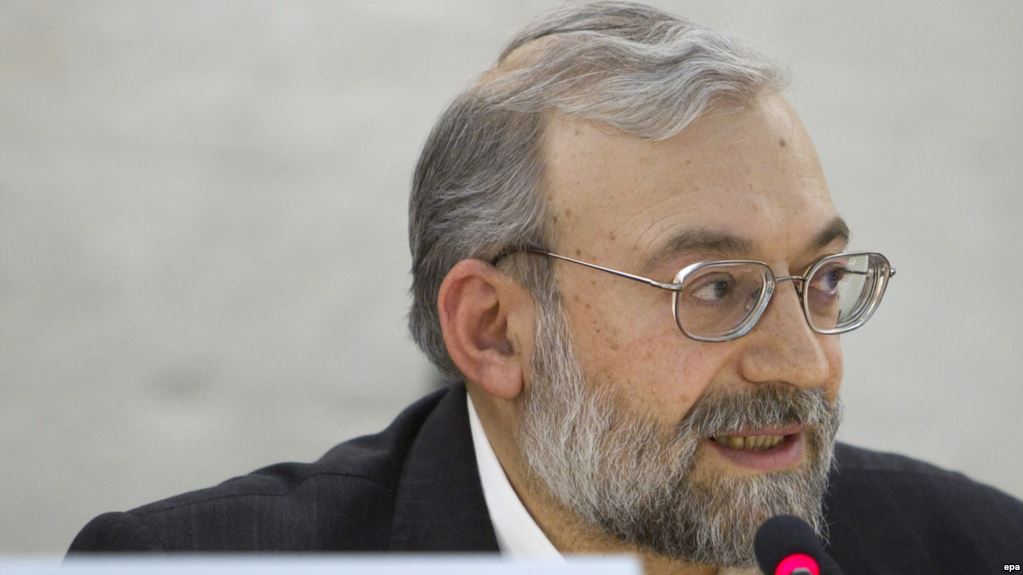
After renewal of Javaid Rehman as UN Special Rapporteur for Human Rights in Iran, Islamic Republic’s headquarters for human rights strongly objected against the measure, claiming that Iran is the ‘largest and most advanced democracy in western Asia and world’.
In a statement issued on its website, Islamic Republic’s headquarters for human rights called this measure ‘unjustified, illegal and outcome of political trickery’. The statement also calls the behaviors of the Special Rapporteurs against the law and a clear evidence as to ‘evil intentions’ of those who are behind this ‘scandalous show’.
The rapporteurs are accused of having ‘political shows in the media’, ‘gathering allegations without a transparent framework and methodology’, and ‘collaborating with criminals and terrorist’. Nevertheless, it doesn’t provide any proofs for its accusations.
Javaid Rehman recently accused Islamic Republic of intensifying crackdown on human rights activists, lawyers, union activists, and unions. He added that the Iranian establishment has increasingly become less tolerant of any criticisms and oppositions.
More than 42 organizations defending human rights, in a statement, has pointed out to the systematic violation of human rights in Iran, asking UN Human Rights Council to renew the mission of UN Special Rapporteur for Human Rights in Iran.
These organizations have underscored that ‘chronic, serious, systematic violation of civil, political, economic, social and cultural rights’ have intensified in Iran compared to the previous year.
These human rights groups urged in their statement that in 2018 at least 5 people lost their lives in Iranian regime’s prisons, and Iranian officials didn’t conduct any transparent investigation in any of the cases.
International institutions and organizations defending human rights have recurrently condemned ‘systematic violation of human rights in Iran’. Last year, UN General Assembly ratified a resolution in protest against violation of human rights in Iran, including arbitrary arrests, torturing prisoners, lack of unfair prosecution, and restricting freedom of speech.
Radio Farda
New report on human rights violations in Iran
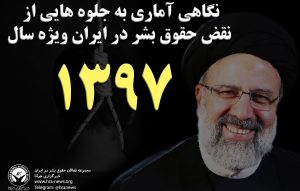
Human Rights Activists News Agency has published a report shedding light on human rights violations in Iran in the past year.
The human rights violations committed by the Islamic Republic’s establishment include– but are not limited to– mounting pressure on religious and ethnic minorities, crackdown on peaceful protesters, persecuting rights activists, execution of minors, disparaging women’s rights, putting pressure on dual nationals and environmentalists, continuous torturing of political prisoners and denying them access to medical care.
Last year, the Islamic Republic’s establishment put 2,687 Iranian citizens behind bars for their political beliefs– at least 233 of whom were imprisoned for their life styles.
708 workers and labor activists, 84 media and cyberspace activists, 39 environmentalists, 241 members of religious minorities, 1,266 members of ethnic minorities and 20 women’s rights activists were among those taken into custody in the past year.
In addition, there were mass roundups and imprisonments of 891 individuals, 400 of whom were Arab citizens protesting against discriminatory policies adopted by the Islamic Republic establishment.
It should also be mentioned that 51 individuals were arrested for being active in modelling, and 6 girls for trying to enter a stadium to watch a soccer game.
What is more, at least 600 thousand child marriages were registered during this period of time in Iran.
Overall, this report cannot completely reflect all cases of human rights violations in Iran, as the government does not allow any independent rights organizations to access necessary sources in this regard.
Human Rights Activists News Agency
Merge President and Supreme Leader into one, says politician
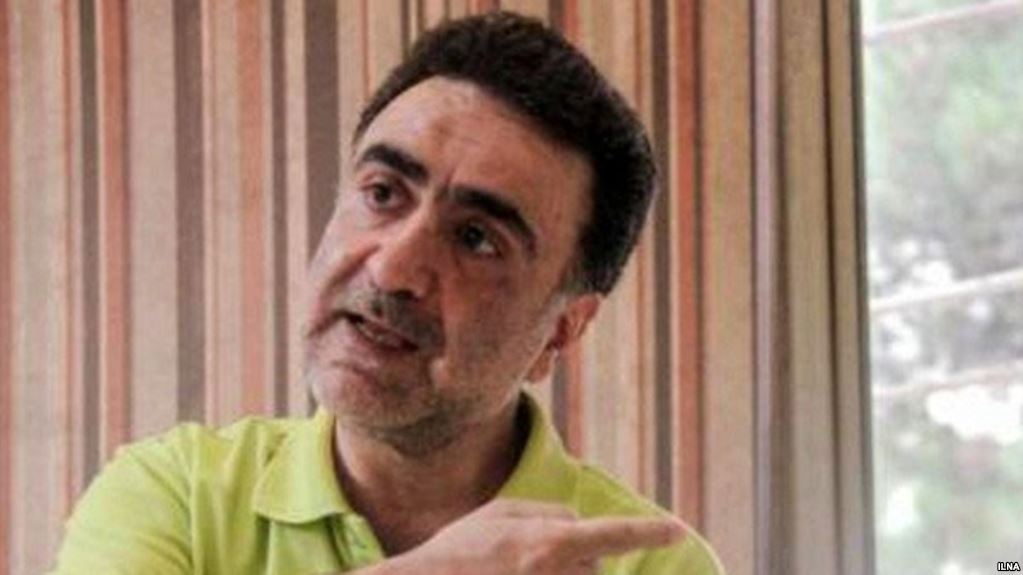
Mostafa Tajzadeh, a senior member of Mojahedin of the Islamic Revolution of Iran Organization, has suggested merging the position of the president with that of the Supreme Leader.
He added the leadership position should be based on election and last for two terms at most in the Islamic Republic establishment.
Tajzadeh’s suggestion came after a member of the Expediency Council, Mohammad Safar Harandi, brought up the idea of change in Iran’s political system from presidential to parliamentary.
In reaction to Safar Harandi, the Parliament’s Deputy Speaker Ali Motahari said removal of presidential position would “decrease people’s role” in their country’s fate. He pointed out it is not a good time for revising the constitution now due to “sanctions and economic pressures.”
The Islamic Republic’s Supreme Leader first posed changing Iran’s political system in 2011. He said if one day it were decided that a parliamentary system worked better in the country, there would be no problem in changing the current mechanism.
Radio Farda
